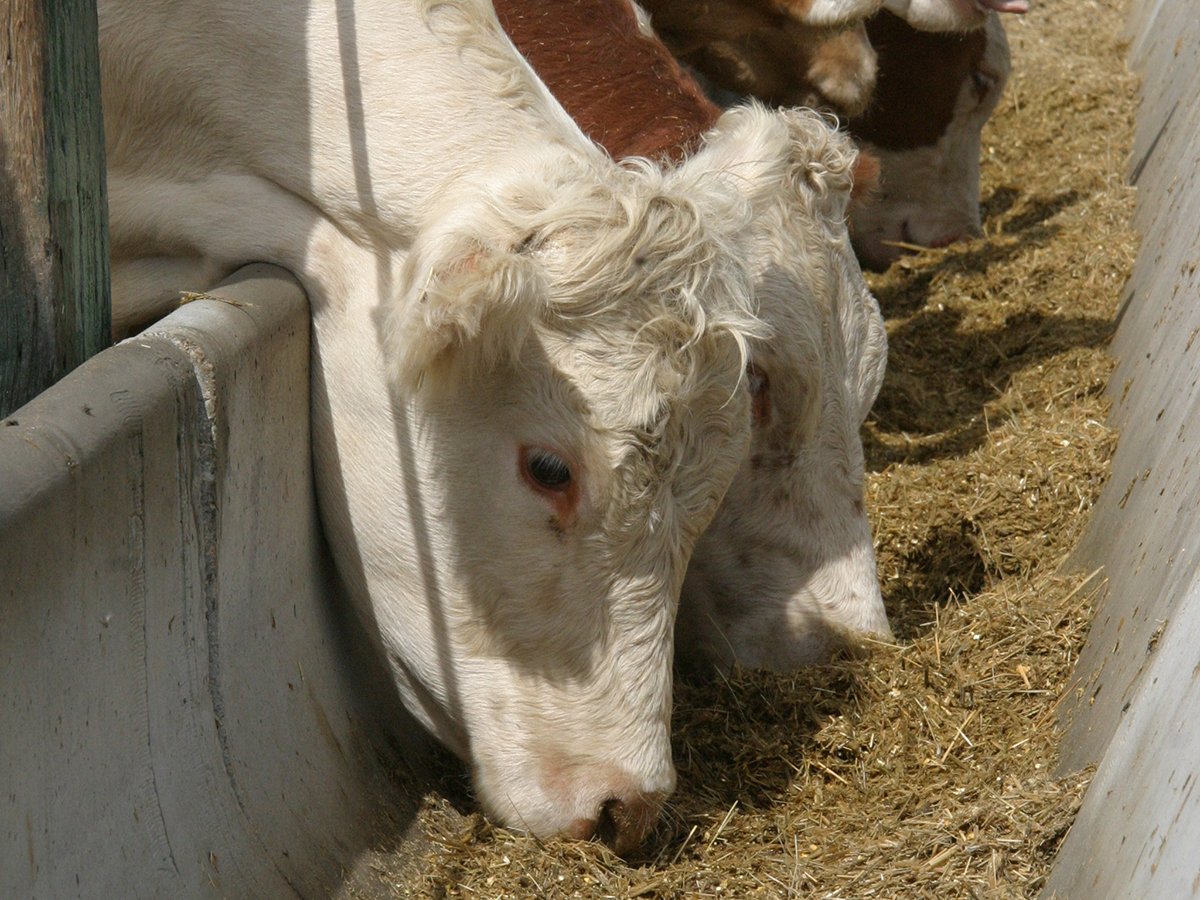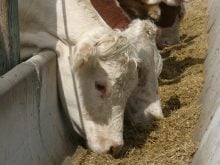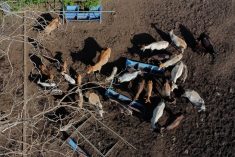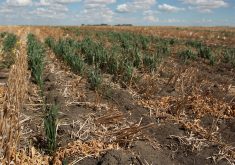In a federal budget which revealed selective spending increases in election-sensitive areas, the Liberals last week found a bit of new money for rural Canada.
And for the first time in three years, the budget did not deliver any new cuts to agriculture programs.
Instead, the Farm Credit Corporation will be receiving a $50 million equity capital injection, which FCC officials say will allow it to increase its loan portfolio by up to $400 million.
As well, $30 million will be spent over the next three years to connect hundreds of small rural communities to the internet.
Read Also

Alberta cattle loan guarantee program gets 50 per cent increase
Alberta government comes to aid of beef industry with 50 per cent increase to loan guarantee program to help producers.
Finance minister Paul Martin, in his fourth budget speech and the last before an expected 1997 election, told the House of Commons Feb. 18 the government wants to be sure rural areas receive their fair share of government spending and future economic opportunity.
“The pressures of adjustment to a changing world are as acute in rural Canada as they are anywhere in the country,” he said. “Let me state unequivocally that we will ensure … that rural Canada has an opportunity to participate, indeed to participate fully, in everything this government has to offer as it builds for the next century.”
Agriculture minister Ralph Goodale proclaimed it a budget that “builds on the strengths of rural Canada in a way which is tailored to the needs of rural Canadians.”
Reform party agriculture spokesperson Elwin Hermanson saw it a different way.
“This is supposed to be a feel-good pre-election budget,” he said in a budget night interview. “I don’t see anything there to make me feel good and I doubt there is a whole lot to make Canadians feel good. There is not much to stimulate the agriculture sector.”
Canadian Federation of Agriculture president Jack Wilkinson complained that agriculture had been left out of the budget, although he also noted at least there were no new cuts.
“Sometimes, you almost consider it a victory when you are not mentioned in the budget these days,” he said in an interview.
Martin said the new equity funding for FCC will allow the Regina-based farm lender “to expand its capacity to support growth and diversification in rural Canada.”
However, a finance department official said it is not the government’s intention to announce an expansion for FCC, as agriculture minister Ralph Goodale once proposed.
And although background budget documents said FCC is considering “new equity instruments as potential financial tools”, no new programs have been planned and FCC officials say they face many roadblocks, including the need to change the FCC legislation.
Provide infrastructure
The $30-million, three-year addition to the community access program is designed to provide the electronic infrastructure small towns need to give their residents access to the internet.
Department officials said it could range from buying a community computer to offering training on using the internet.
“As a result of this program, virtually every community in Canada between 400 and 50,000 in population will be connected over the next four years,” Martin bragged.
The government also used the budget to confirm that it is prepared to spend $600 million this year on an infrastructure program, if the provinces and local governments each match it. As much as one-third of that could go to rural areas in some provinces.
And it announced creation of a new Canada Foundation of Innovation that could help build or upgrade agricultural research labs.
The foundation will distribute $180 million annually for five years to build or upgrade public research facilities at universities, hospitals and non-profit groups or institutes.
Although eligibility will be restricted to facilities focusing on health, the environment, science and engineering research, a finance department official said agriculture research labs will be eligible.
The government said the investment is needed because facilities have been allowed to run down.














